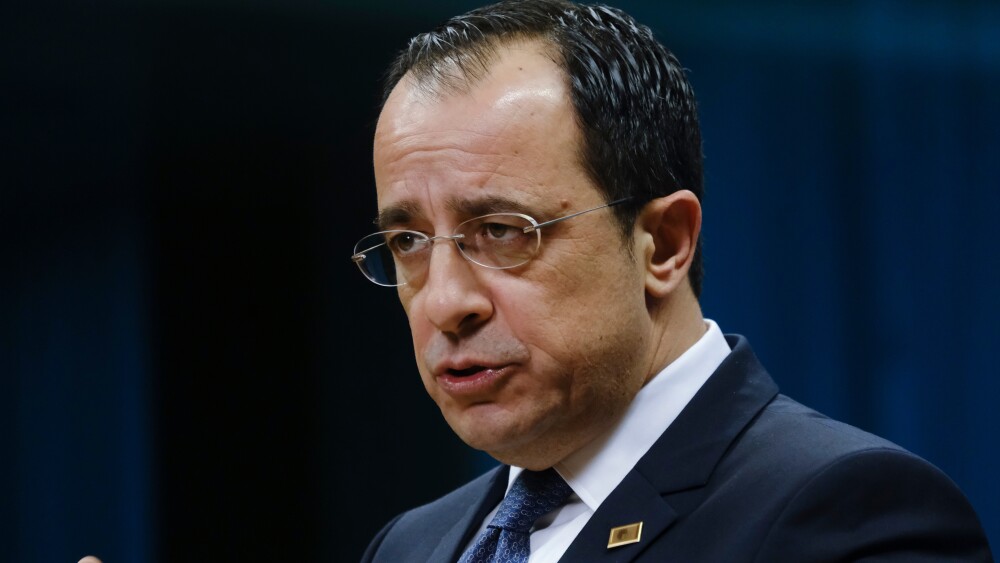The Eastern Mediterranean is emerging as a point of connection between Europe and Central Asia, with Cyprus positioning itself as a diplomatic and economic bridge. At the center of this effort is Nicosia’s expanding relationship with Kazakhstan—Central Asia’s largest economy—which is progressing despite underlying tensions with Turkey, a major actor in both regions.
Momentum has been building steadily between Cyprus and Kazakhstan. In September 2023, Kazakhstan’s Deputy Foreign Minister Roman Vassilenko visited Cyprus for the first direct political consultations between the two foreign ministries, coinciding with the opening of Kazakhstan’s honorary consulate in Nicosia.
Diplomatic ties deepened in 2024 and 2025: Cyprus opened its first embassy in Astana in October 2024, and Kazakhstan reciprocated in Nicosia in February 2025. Both sides describe the relationship as a strategic partnership.
In March 2025, Cypriot Foreign Minister Constantinos Kombos hosted Kazakhstan’s Deputy Prime Minister and Foreign Minister Murat Nurtleu. They agreed to expand cooperation in trade, investment, and tourism, with direct flights launched by 2026. President Nikos Christodoulides is also preparing for an official visit to Kazakhstan.
Since 2005, Cypriot investors have directed over $4 billion into Kazakhstan, while Kazakh businesses have invested more than $1.8 billion into Cyprus.
These diplomatic advances rest on a solid foundation of economic interaction. Cyprus ranks among Kazakhstan’s top investment partners. Since 2005, Cypriot investors have directed over $4 billion into Kazakhstan, while Kazakh businesses have invested more than $1.8 billion into Cyprus. Nearly 300 Cypriot-capital companies are registered in Kazakhstan, while Kazakh firms—including fintech leader Freedom Finance Europe—have established a presence in Cyprus. In many cases, the ultimate origin of capital is Russia or other countries using Cyprus for tax optimization—highlighting the island’s role as a financial and legal entry point between East and West. To further support business ties, both countries have held bilateral forums respectively in Limassol and Almaty.
The growing ties between Nicosia and Astana have not escaped Turkey’s attention. Ankara, which does not recognize Republic of Cyprus, opposed Kazakhstan’s decision to open an embassy in Nicosia. Tensions escalated further in March 2025, when Turkey denied overflight clearance to an aircraft carrying Kazakhstan’s foreign minister en route to Cyprus in attempt to discourage high-level engagement with Nicosia.
Still, Kazakhstan’s positioning is not entirely new. In 2023, Astana declined to invite the Τurkey-backed northern Cypriot regime to the Organization of Turkic States Summit—despite the Turkish satrapy’s observer-member status. That earlier decision foreshadowed Kazakhstan’s more flexible foreign policy, which now enables deeper ties with Cyprus while maintaining relations within Turkic institutions.
This raises a broader question: Can Kazakhstan pursue deeper ties with Cyprus without undermining its ties with Turkey?
Despite warming bilateral ties, bypassing Turkey’s influence entirely is unrealistic. Ankara remains deeply embedded in the region, with control over critical corridors like the Middle Corridor, energy infrastructure such as the Trans-Anatolian Natural Gas Pipeline, and leadership roles in Turkic institutions. Kazakhstan’s access to European markets still intersects with Turkish logistical and diplomatic networks.
Kazakhstan’s outreach to Cyprus signals that not every Turkic country wishes to subordinate itself to Turkey’s diktats.
However, Kazakhstan’s decision to proceed with Cyprus relations—despite Turkish objections—signals a recalibration. By establishing embassies, forums, and direct air links, Astana is diversifying its diplomatic channels and diluting Turkey’s exclusive role as the primary East–West connector. As former Kazakh Ambassador to Cyprus Satybaldy Burshakov noted, Kazakhstan’s evolving internal and external policy “opens the door to enhanced cooperation with Cyprus” and a balanced diplomatic approach.
While Turkish officials promote pan-Turkic solidarity, Kazakhstan’s outreach to Cyprus signals that not every Turkic country wishes to subordinate itself to Turkey’s diktats. Ankara may demand solidarity, but Kazakhstan has a multi-vector foreign policy and signals that its national interests trump Turkish interests. The question now becomes whether other Turkic states will follow suit. Fracturing the illusions of pan-national grandeur that nationalist thinkers in Ankara and Istanbul have is important. Cyprus may be the European Union’s third smallest member—more populous only than Luxembourg and Malta—but it continues to punch above its weight diplomatically as it contributes to Europe’s economic and geopolitical security.







